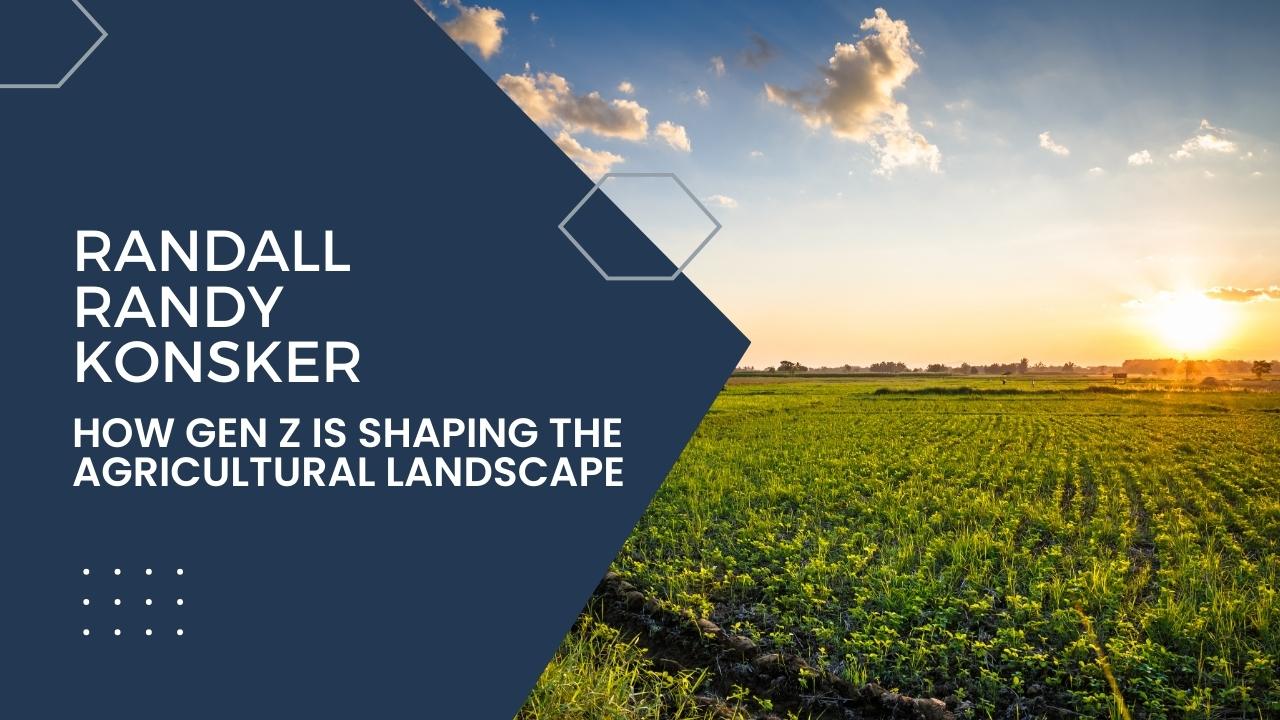
As the world grapples with the challenges of climate change, food security, and sustainable development, the agricultural sector is undergoing a significant transformation. Central to this evolution is the influence of Generation Z (Gen Z), individuals born between 1997 and 2012, who are increasingly shaping the agricultural landscape with their innovative approaches, technological fluency, and commitment to sustainability. Randall Randy Konsker, an expert in agricultural trends, highlights how Gen Z is poised to revolutionize farming and food production, ensuring a resilient future for global agriculture.
Embracing Technology and Innovation
Randall Randy Konsker says gen Z is the first generation to grow up with digital technology at their fingertips. This familiarity with technology is driving a wave of innovation in agriculture. Young farmers and entrepreneurs are leveraging advanced tools such as drones, sensors, and artificial intelligence to enhance crop management, monitor soil health, and optimize water usage. These technological advancements not only increase efficiency but also reduce the environmental impact of farming practices. Konsker emphasizes that Gen Z's comfort with technology is leading to the widespread adoption of precision agriculture, which promises to boost yields and ensure sustainable resource utilization.
Commitment to Sustainability
Sustainability is a core value for Gen Z, and this commitment is reshaping agricultural practices worldwide. Faced with the realities of climate change and environmental degradation, Gen Z is advocating for regenerative farming methods that restore soil health, enhance biodiversity, and reduce carbon footprints. These young farmers are championing practices such as cover cropping, no-till farming, and organic agriculture, which prioritize long-term ecological balance over short-term gains. Konsker notes that Gen Z's dedication to sustainability is not just a trend but a fundamental shift that is influencing policy decisions and consumer preferences, leading to a more environmentally conscious agricultural sector.
Focus on Local and Urban Farming
Another significant trend driven by Gen Z is the rise of local and urban farming. With a growing interest in food security and community resilience, many young people are turning to small-scale, urban agriculture to produce fresh, local food. This movement is transforming unused urban spaces into productive green areas, reducing food miles, and promoting healthier eating habits. Konsker points out that urban farming initiatives, such as rooftop gardens and vertical farms, are not only providing fresh produce to city dwellers but also creating educational opportunities and fostering community engagement. This shift towards local food systems reflects Gen Z's desire for greater transparency and control over their food sources.
Advocacy and Social Media Influence
Gen Z's influence on agriculture extends beyond the farm to the realm of advocacy and social media. Young activists are using digital platforms to raise awareness about agricultural issues, promote sustainable practices, and advocate for policy changes. Social media has become a powerful tool for sharing knowledge, connecting with like-minded individuals, and mobilizing support for causes such as climate action and food justice. Konsker highlights that Gen Z's adept use of social media is amplifying their voices and driving significant cultural and political shifts within the agricultural sector. By harnessing the power of digital communication, Gen Z is not only shaping public discourse but also inspiring a new generation of environmentally conscious consumers and producers.
Conclusion
Generation Z's impact on agriculture is profound and multifaceted. Through their embrace of technology, commitment to sustainability, focus on local and urban farming, and advocacy efforts, they are driving a transformative change in the way we produce and consume food. Randall Randy Konsker's insights underscore the importance of recognizing and supporting these young innovators as they lead the charge towards a more sustainable and resilient agricultural future. As Gen Z continues to influence the agricultural landscape, their contributions will be crucial in addressing global challenges and ensuring a thriving planet for future generations.